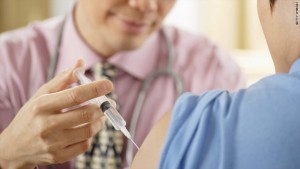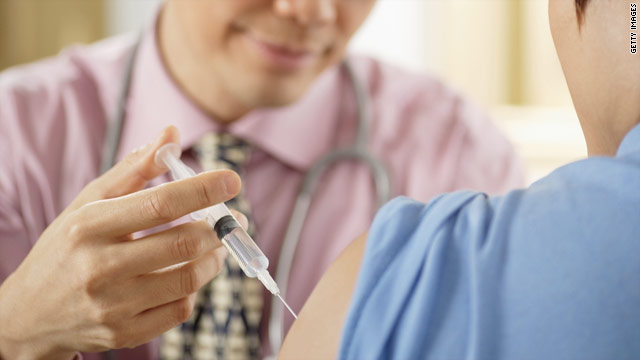HPV vaccine should be extended to all boys and men at risk
 Terrence Higgins Trust urges for HPV vaccine to be extended to all boys and men who have sex with men in European Immunisation Week.
Terrence Higgins Trust urges for HPV vaccine to be extended to all boys and men who have sex with men in European Immunisation Week.
The HPV vaccine needs to be extended to all boys and men who have sex with men (MSM) “as a matter of urgency”, Terrence Higgins Trust, the UK’s largest HIV and sexual health charity has said.
On Tuesday the charity attended the European Men’s Health Forum (EMHF) HPV Symposium in London, coinciding with European Immunisation Week (20-25 April). Delegates were told of the health impact of not vaccinating boys against the human papillomavirus (HPV).
A vaccination programme against HPV began in 2008 in the UK for girls aged 12–13 to stop them being at risk of developing cervical cancer, which is caused by the human papillomavirus. However, emerging research over the past 8 years has found that cancers of the head, mouth, throat, penis and anus can also be caused by strains of the virus.
Heterosexual men gain indirect protection from the virus through “herd protection” if a majority of women in the population are vaccinated. But if men have relationships with women who did not receive the vaccine they are at risk of contracting HPV and developing cancers. This includes the women who were older than 18 in 2008 when the programme was introduced, the 15 per cent of girls who have not been reached by the vaccination programme, and the majority of women outside the UK worldwide who are unvaccinated. Additionally the current programme offers no protection to men who have sex with men (MSM).
HPV is known to spread through genital or oral contact. It can cause cervical, penile, anal and throat cancers, as well as genital and anal warts. MSM, and particularly those living with HIV, are at high risk of HPV-related cancers as well as genital warts. In addition, people with HPV are at higher risk of acquiring or passing on HIV.
There is a significant and growing rate of anal cancer in MSM. Anal cancer rates in MSM are equivalent to the rates that existed for cervical cancer in women before 1988, when the Government introduced the cervical cancer screening programme. The estimated incidence of anal cancer in MSM is 35/100,000 per year, and for HIV positive MSM, this is estimated to be 70–100 cases per 100,000. Figures from Public Health England show there were 47,549 cases of genital warts recorded in men in 2011. There were also 2,141 recorded cases of anal, oral or penile cancers in men in 2011.
Since October 2013 the Joint Committee on Vaccination and Immunisation (JCVI) has been considering whether men who have sex with men (MSM) and/or adolescent boys should also be offered the vaccine.
The JCVI made an initial recommendation in November 2014 that MSM aged 16-40 should be offered the vaccine in GUM clinics and HIV clinics. However, the JCVI delayed making its full recommendation until October 2015, following concerns from GUM clinics that the cost for administering the vaccine for MSM would make it not cost-effective.
Dr Shaun Griffin, Executive Director of External Affairs at Terrence Higgins Trust said: “We believe that the HPV vaccine should be extended to all boys irrespective of their sexuality and to MSM as a matter of urgency. This is why we are working with other health organisations as a member of HPV Action to call for the school HPV vaccination programme to include boys as well as girls. The significant and growing rate of anal and other HPV-related cancers in Europe was described a ‘time bomb’ at the meeting this week. Each delay leaves these groups unprotected against HPV-related cancers. These inequalities urgently need to be addressed by the next Government.”

